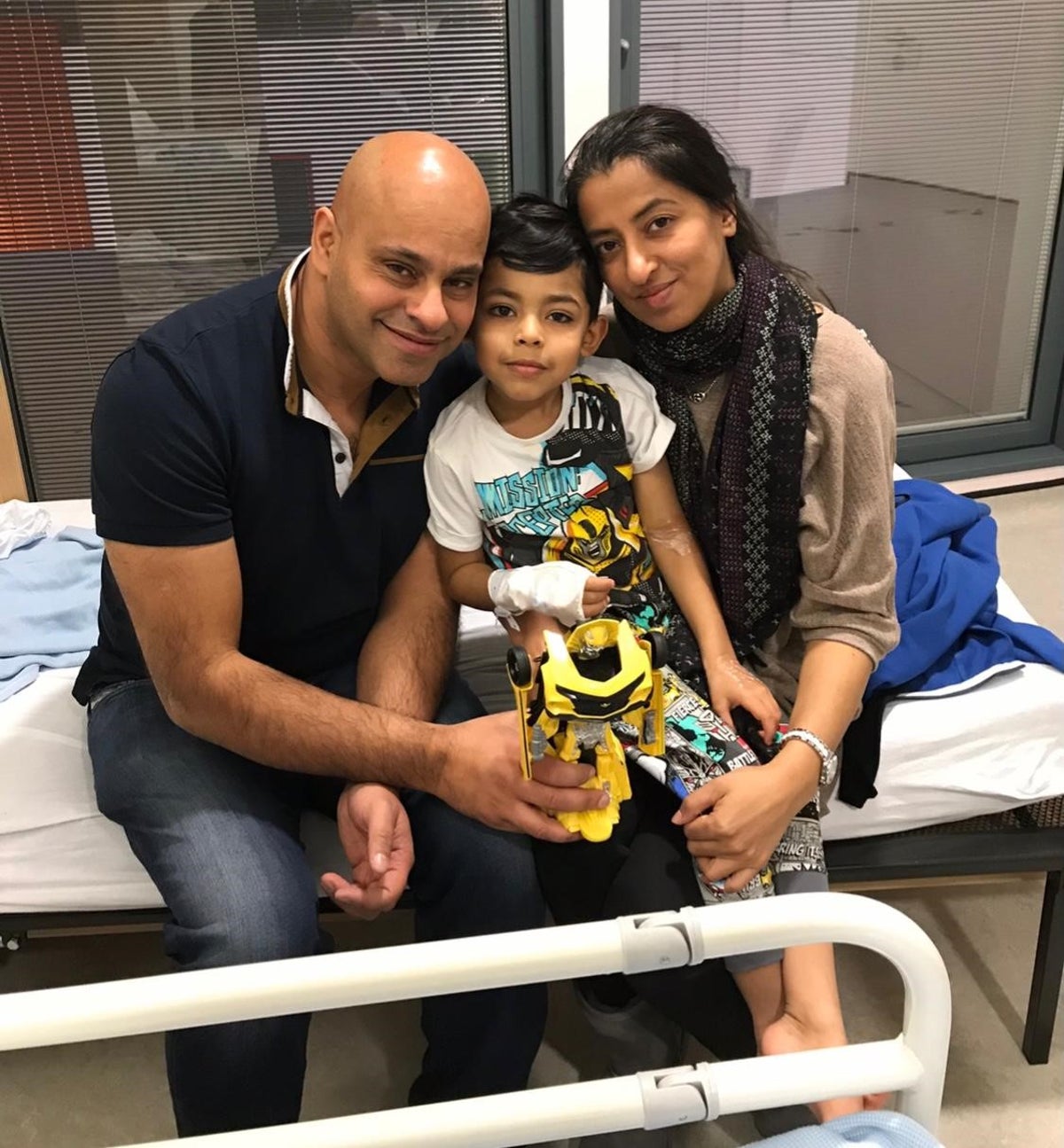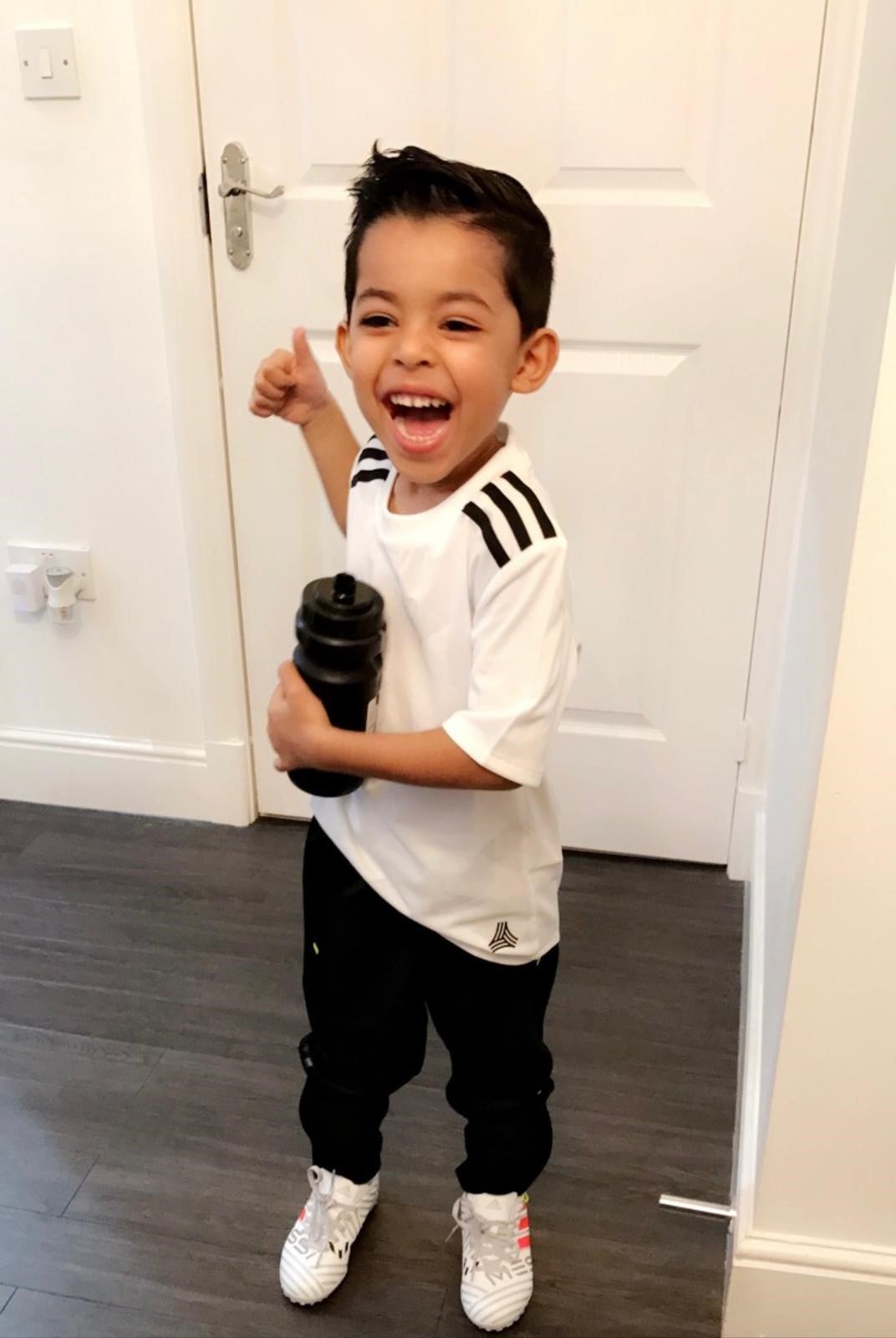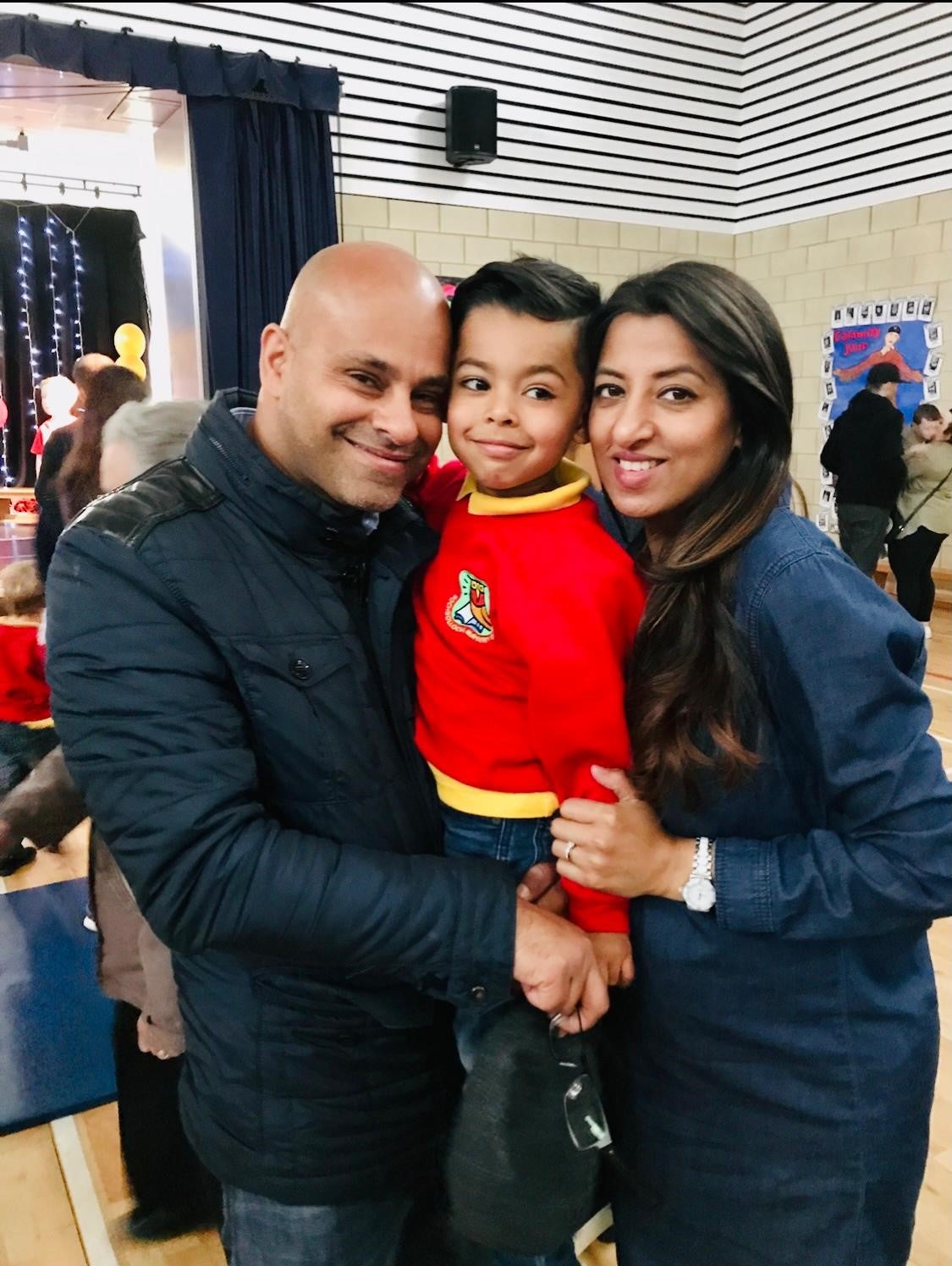
A little boy whose headaches turned out to be a brain tumour died in his parent’s arms just four months after his diagnosis.
Rayhan Majid, aged four, died after doctors discovered an aggressive grade three medulloblastoma tumour touching his brainstem.
His mother Nadia, 45, took Rayhan to see four different GPs on six separate occasions after he started having bad headaches and being sick in October 2017.
No one thought anything was seriously wrong, but when his headaches didn’t clear up Nadia rushed him to A&E at the Queen Elizabeth University Hospital in Glasgow.
An MRI scan revealed a 3cm x 4cm mass in Rayhan’s brain.
Nadia, from Airdrie, North Lanarkshire, said: “Rayhan was a healthy and active boy who played football and did Taekwondo and swimming.
“He was never sick but, in October 2017, when he was four years old, he woke up crying one evening.
“When I went to him, he wasn’t quite aware of himself.
“He was clutching his head and saying that it was hot, but I couldn’t make eye contact or get through to him.
“He started to wake up in the night with a headache quite a few times, and he would be sick in the morning.
“It wasn’t like normal sickness. He would be retching and all that came out was bile.
“That’s when my alarm bells started ringing.”

“We just knew something wasn’t right, so we took him to the doctors, but they were not very helpful.
“They would tickle and play with him, and he would laugh and giggle.
“Rayhan would pass the neurological tests with flying colours, and the doctors said he was absolutely fine.
“But he kept getting sick and his headaches were also increasing.
“Over the course of six weeks, we took him to see four different GPs on six separate occasions.
“When Rayhan watched TV, he kept saying he couldn’t hear it and he turned it up really loud.
“We also noticed when he was walking through doorways in the house, he wasn’t negotiating the door frames very well and he would wobble into them.

“We were convinced something was wrong with him but didn’t want to keep going back to the GPs who were dismissing us.
“Eventually, we decided to take him to the Accident and Emergency department at the Queen Elizabeth University Hospital in Glasgow.”
Rayhan underwent surgery to remove as much of the tumour as possible and was told he would need six weeks of radiotherapy and four months of chemotherapy.
But before the treatment even started another MRI scan revealed the devastating news that the cancer has spread.
Nadia, who is also mother to Eliza, aged five, and Zak, 14, added: “After the operation Rayhan developed cerebellar mutism and couldn’t speak or walk.
“He went from being this vibrant boy who was full of energy and laughter to being silent and unable to move.
“From his expressions we could see that he was in pain, but he couldn’t tell us what was wrong.”

Despite completing the radiotherapy and his first round of chemotherapy, Rayhan died soon on April, 7, 2018 in the arms of his mum Nadia and dad Sarfraz.
Nadia added: “We held onto our beloved boy and told him how much we loved him until 04:22 on Saturday 7 April when our Rayhan took his last breaths.”
She is now taking on a 10,000 steps a day challenge to raise money for Brain Tumour Research.
Nadia said: “I signed up to Brain Tumour Research’s 10,000 Steps a Day in February challenge along with my sisters, cousins and friends because the campaign resonates so much – walking will always be very symbolic for me as it’s so interlinked with my memories of Rayhan.
“Our Steps for Rayhan fundraiser has an overall target to raise £4,000 for Brain Tumour Research to help bring about better outcomes for brain tumour patients so that families aren’t devastated like ours.
“Thanks to everyone who has donated so far to bring our total already to more than £3,000.” Matthew Price, community development manager at Brain Tumour Research said: “We’re really grateful to Nadia and the Remembering Rayhan team for taking on our 10,000 Steps a Day in February challenge as it’s only with the support of people like them that we’re able to progress our research into brain tumours and improve the outcome for patients who are forced to fight this awful disease.”







